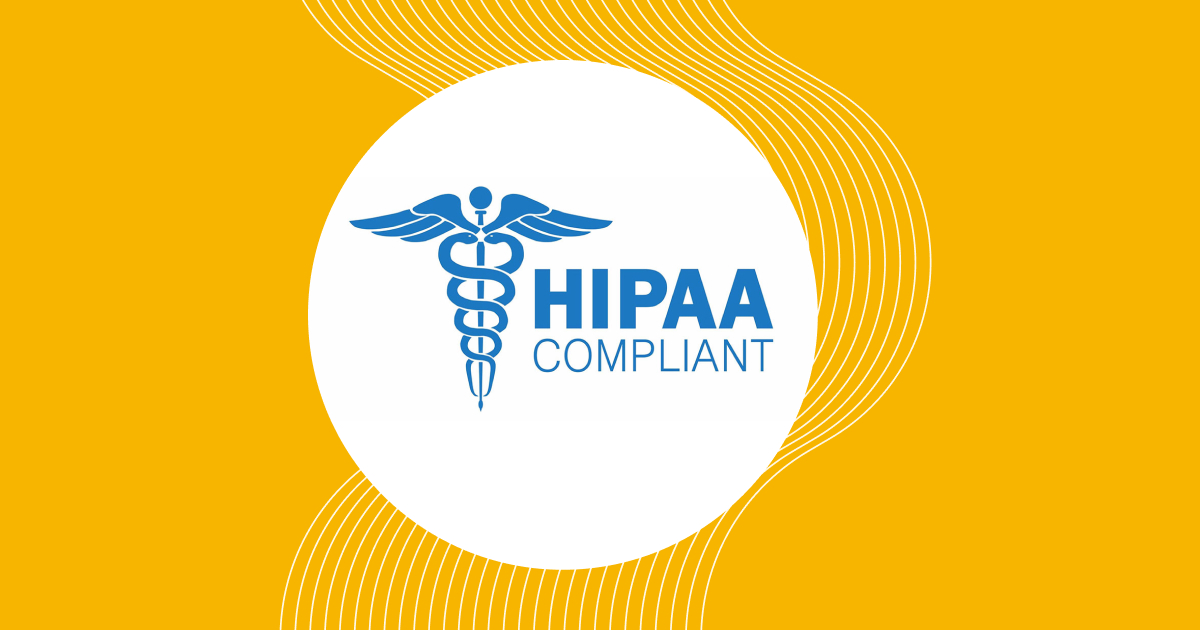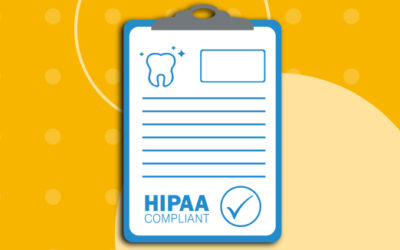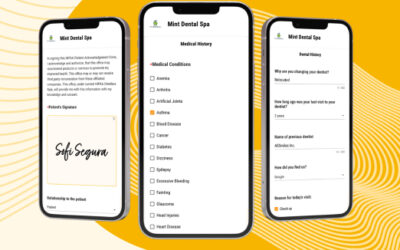
The digitization of healthcare has streamlined many processes, but also introduced new challenges in protecting confidential patient information. For dental practices, this means ensuring compliance with HIPAA (Health Insurance Portability and Accountability Act) regulations when using digital dental forms and records. Violations can lead to hefty penalties, legal liabilities, and loss of patient trust. By understanding HIPAA rules and proactively addressing vulnerabilities, dental clinics can fully realize the benefits of digital systems while upholding critical privacy safeguards. This guide covers key steps for securing protected health information (PHI) within digital dental workflows.
Conduct Comprehensive Risk Assessments
An annual risk assessment that evaluates potential threats and vulnerabilities to PHI within digital systems is recommended. To begin, conduct an audit of the locations where PHI is stored, such as practice management software, Electronic Health Records (EHRs), email, patient portals, and other systems. Following that, assess the likelihood and impact of potential risks such as unauthorized access, hacking, lost devices, and improper disclosure. A simple 10-point scale can often be adequate. The goal is to quickly determine where you are more secure, less secure, and where you require more stringent efforts. Finally, prioritize risks and develop corrective actions such as encryption, stronger authentication procedures, and access controls. Plan for ongoing reviews to ensure that new risks are addressed as new technologies emerge.
Develop Robust HIPAA Security Policies and Procedures
Documented policies and procedures are the foundation of a HIPAA compliance strategy.
Key areas to address include:
- Authorizing access to PHI
- Protocols for storing, transmitting and disposing of records
- Encryption standards
- Emergency access procedures
Policies should also cover patient rights regarding their PHI, procedures for requesting amendments, and rules regarding disclosure. Review regularly and update promptly when adding new digital systems. Ensure policies are accessible to staff for easy reference.
Utilize HIPAA-Compliant Digital Dental Platforms
When selecting online dental form and record tools, it is necessary to limit options to HIPAA-compliant solutions. To protect PHI, the following capabilities are recommended:
- Data encryption at rest and in transit to prevent unauthorized access.
- Role-based access controls to limit access to only those who need it. Access to specific data fields or actions can be restricted using settings.
- Extensive audit trails that log all system activity for monitoring purposes.
- Secure file transfer protocols, such as SFTP, for secure record transmission.
- Inactive sessions are automatically timed out to prevent unauthorized system access.
- Strong authentication methods, such as multi-factor or biometric authentication.
- Built-in backup plans for emergency access procedures in the event of a system failure.
Cloud-based digital dental platforms protect PHI and make compliance easier. Because of the scale of cloud infrastructure, advanced security tools such as AI threat detection, advanced encryption, and distributed access controls are possible. Cloud platforms alleviate the burden of managing hardware, software, and security locally.
Vendors should be willing to sign a HIPAA Business Associate Agreement, which contractually binds them to the same PHI protection standards as your clinic. Perform due diligence on any vendor’s security track record as well as training practices. Validation should be provided through independent audits and recognized HIPAA certifications.
Compliance is enabled by the right digital dental platforms, which also improve workflows and patient engagement. However, it is ultimately the responsibility of dental practices to ensure that tools meet their standards and that PHI entrusted to them by patients is appropriately safeguarded.
Apply Physical Safeguards
Despite the fact that digital records have no physical form, the hardware used to access them must be safeguarded. Workstations, laptops, tablets, smartphones, and any other device containing PHI should have automated screen locks, data encryption, and be securely stored after hours. Server rooms should have locked doors, climate controls, and backup power systems. Before disposing or repurposing of devices, remove all PHI.
Train Staff Thoroughly on Security Protocols
Although annual HIPAA training is legally required, best practices necessitate regular, collaborative sessions. Refresh key concepts such as secure password practices, email security, social media usage, and proper record disposal. Training should be tailored to the role – clinical staff have different needs than billing personnel. Any policy or procedure changes should be communicated to staff. Create an organizational culture that values patient data privacy.
Manage Vendor Relationships Carefully
Any contractor or service provider who comes into contact with PHI must follow the same HIPAA rules. A Business Associate Agreement (BAA) binds them legally and holds them accountable instead of you if they make a mistake. Perform due diligence by investigating a vendor’s security standards, audits, and training. Define their specific role in PHI protection and remedial measures in the event of a breach. Review and update BAAs on an annual basis, and immediately notify vendors of policy changes that affect their access or responsibilities.
Empower Patients with Access and Understanding
The HIPAA Privacy Rule gives patients important rights over their health information and regulates PHI disclosures. Dental practices must provide timely and secure access to PHI via patient portals, email, fax, or printed copies as requested by patients. A Notice of Privacy Practices must be provided to patients to inform them of their rights and the clinic’s privacy practices.
Training staff on how to limit PHI disclosures to the bare minimum is critical, as are protocols for dealing with external requests. Consent forms should be updated so that patients can specify their preferences for digital dental record access and communication methods such as texts or emails for scheduling appointments.
Implement Incident Response and Breach Notification Plans
Even with the most stringent safeguards, data breaches can occur. It is critical to maintain a documented response plan that is implemented immediately if a PHI breach is discovered. The plan should bring together key personnel from various departments to investigate, contain the breach, notify affected patients and authorities, mitigate damages, and implement corrective actions to prevent a recurrence.
HIPAA has strict reporting deadlines for breaches; notice must be given to the Department of Health and Human Services Office for Civil Rights (OCR) within 60 days for breaches affecting more than 500 patients. Smaller breaches of less than 500 patients have a 60-day deadline after the end of the calendar year. It is critical to provide timely notification and response.
Centralizing oversight of privacy and security practices under a designated HIPAA compliance officer can help to streamline incident response coordination. The compliance lead will also maintain and update the incident response plan as needed.
Perform Ongoing Compliance Monitoring and Assessments
Ongoing audits help identify potential gaps or lapses in HIPAA privacy and security compliance across dental practice functions. Schedule quarterly reviews of clinical, billing, administrative and other applicable departments. Monitoring day-to-day processes pinpoints risk points, like a repeatedly misdirected fax or unauthorized access attempt that may otherwise go unnoticed. Both internal and third-party audits provide important perspectives to enhance the efficacy of your compliance program.
Simplify Ongoing Compliance with Specialized HIPAA Tools
Many time-consuming tasks, such as risk analysis, policy management, training, and IT security monitoring, are automated by technology solutions designed for dental HIPAA compliance. Cloud-based practice management platforms centralize digital workflows while protecting PHI. Some dental EHR systems integrate with HIPAA-compliant patient engagement tools directly. The right tools improve compliance across all endpoints and team members who have access to patient data.
Dental practices can reduce paperwork, streamline workflows, and engage patients more proactively by integrating digital systems. However, with these advantages comes increased responsibility for safeguarding protected health information. Dental clinics can harness the potential of digital while maintaining the privacy protections patients deserve by taking a systematic approach to identifying risks, training staff, and implementing both physical and technical security protocols. HIPAA compliance requires ongoing vigilance, responsiveness, and care as technologies and dental practices evolve.


